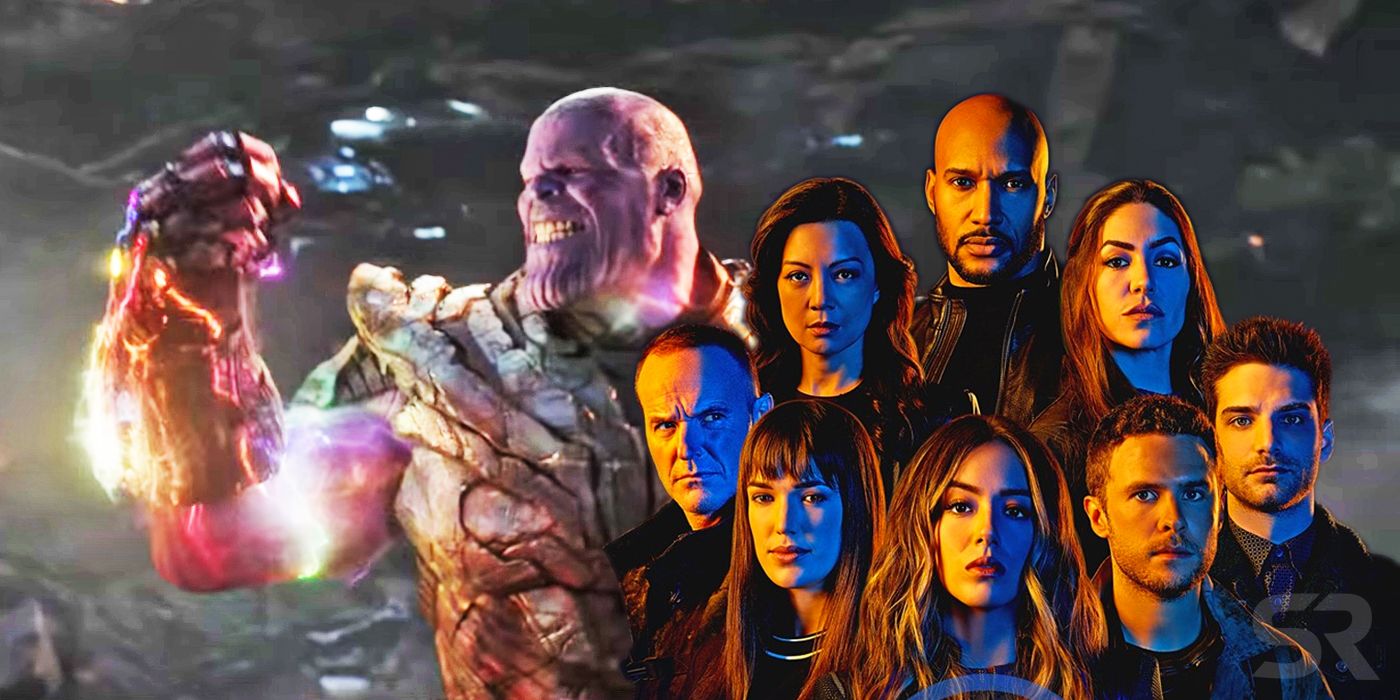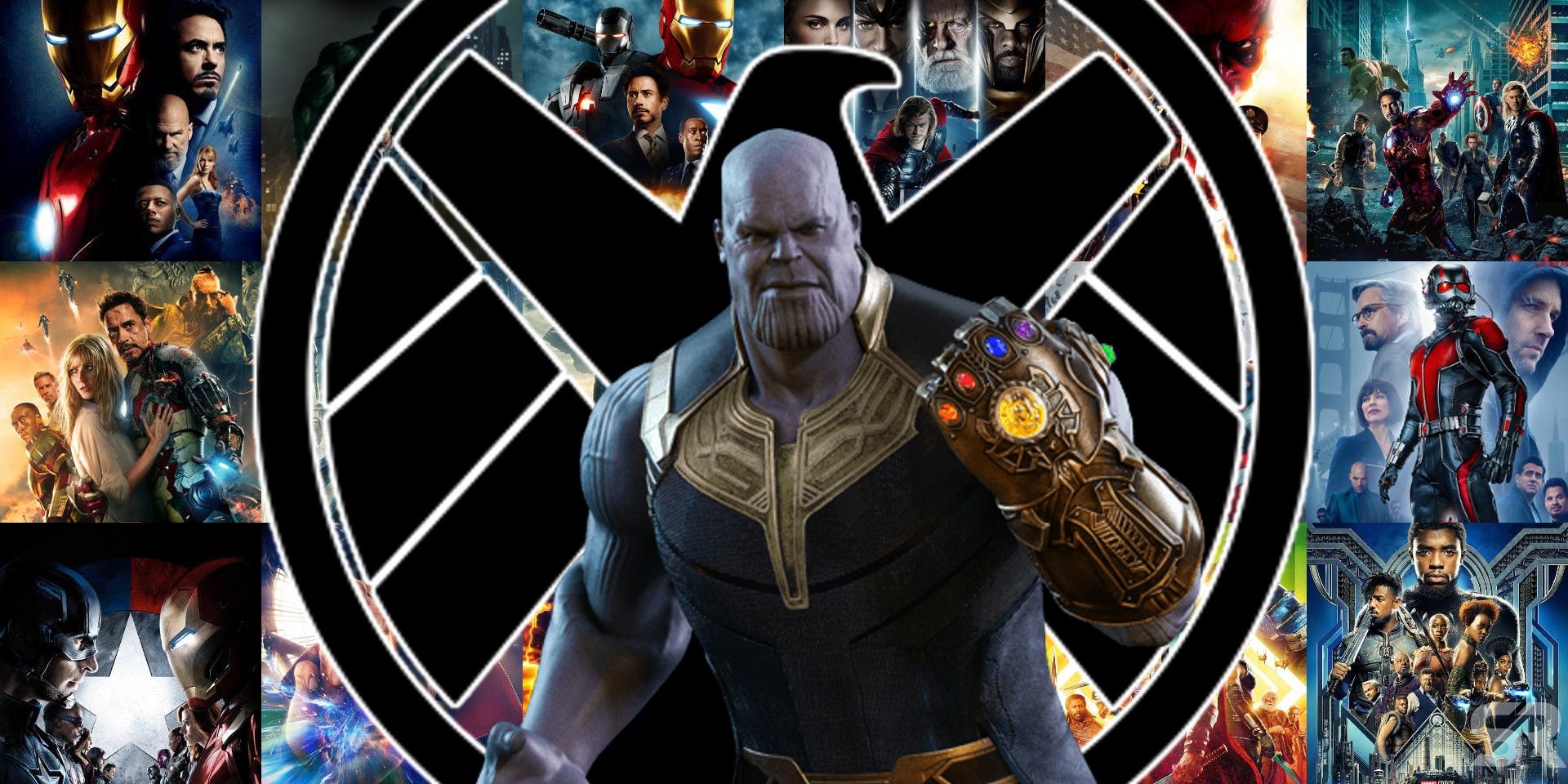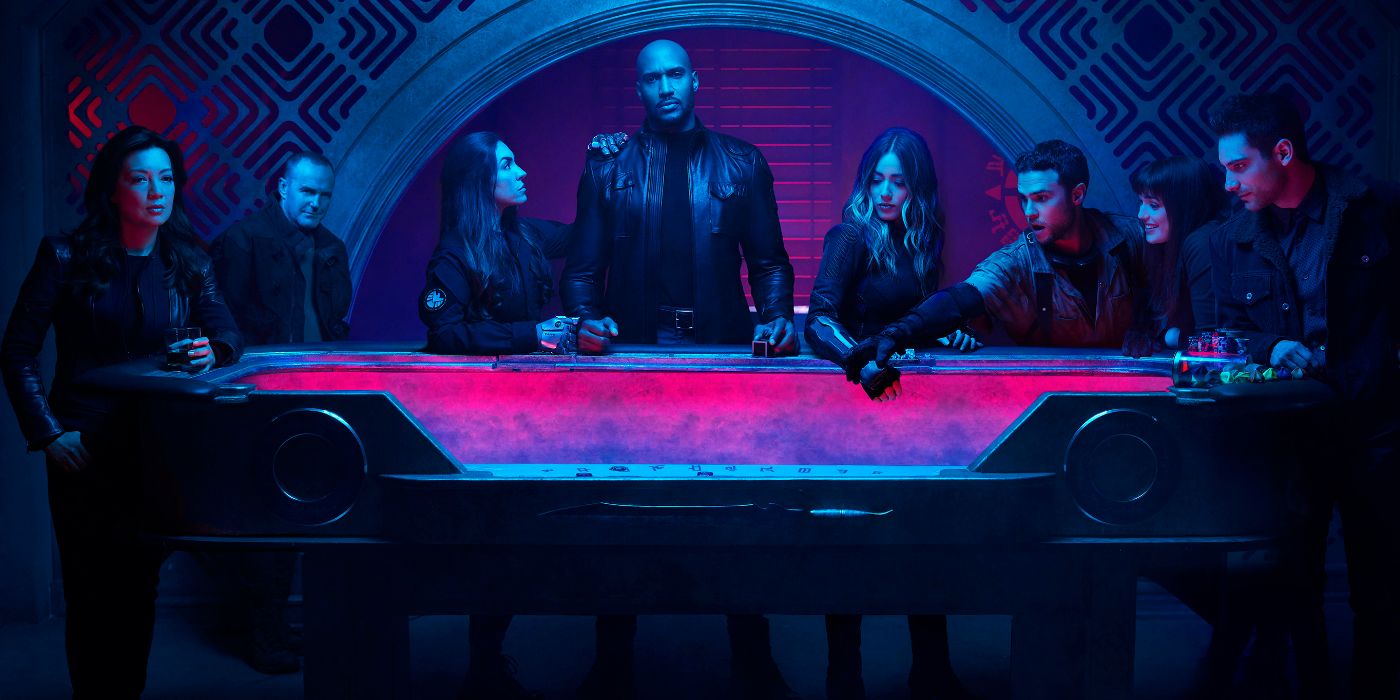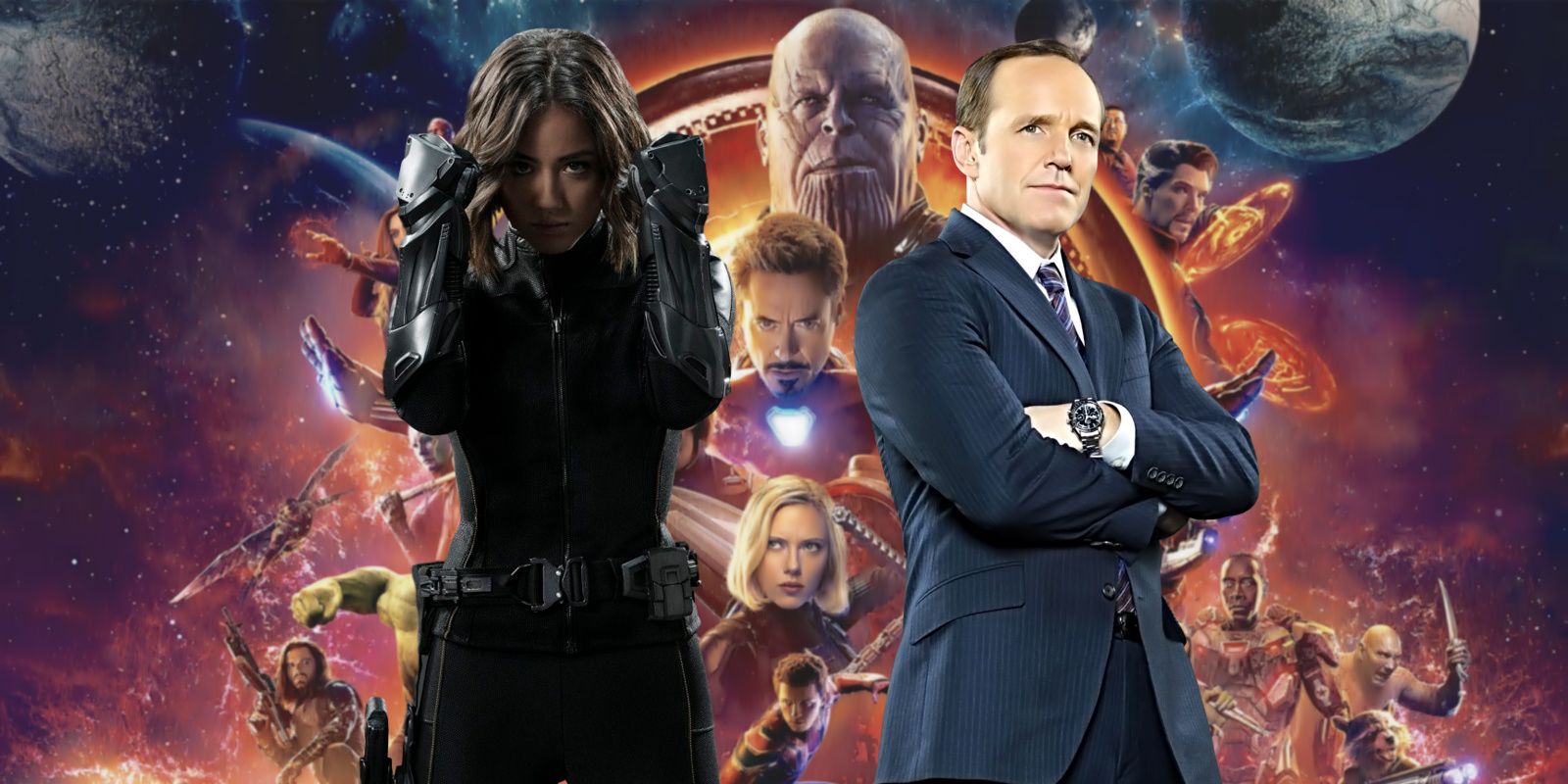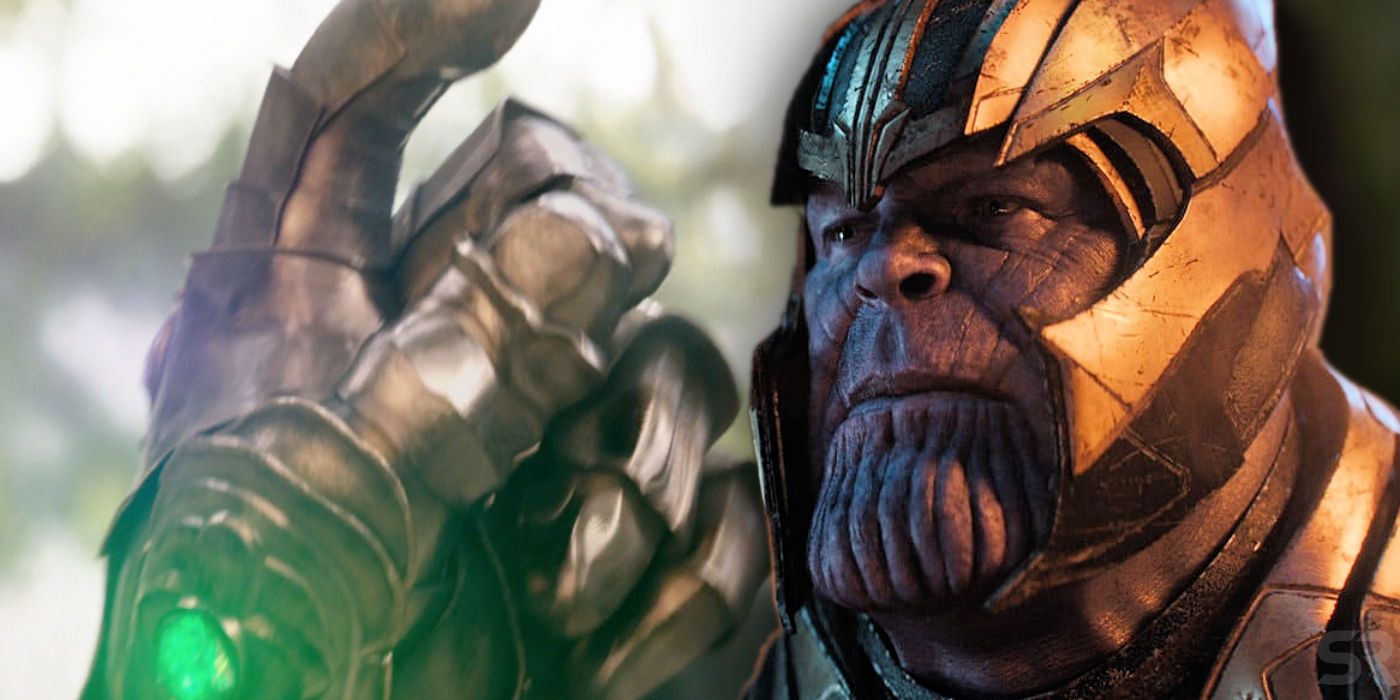Could the solution to Agents of SHIELD season 6's lack of connectivity to the Marvel movies be because the TV series is now set in an alternate MCU timeline? When Marvel's Agents of SHIELD launched back in 2013, the show quickly gained a reputation as being the film franchise's official TV series. Season 1 included a tie-in episode for Thor: The Dark World, and then allowed the Hydra twist from Captain America: The Winter Soldier to redefine its main narrative.
In 2015, a corporate restructure led to Marvel Studios being separated from the wider Marvel Entertainment group. Since then, the relationship between Marvel Television and Marvel Studios has been a lot more distant, and as a result Agents of SHIELD has felt a lot less connected to the movies. That's actually been something of a strength, because it's allowed the show to build on its own mythology. Seasons 4 through 6 have shown a confidence that the early seasons didn't possess, with Agents of SHIELD introducing an all-new Ghost Rider, diving into a dystopian future timeline, and now repelling a full-scale alien invasion.
But, unfortunately, that throws something of a wrench in the idea that Agents of SHIELD exists in the same timeline as blockbuster movies like Avengers: Infinity War and Avengers: Endgame. In theory, the cosmic events seen in those two films should have had a massive impact upon Agents of SHIELD - but that simply hasn't been the case.
Agents of SHIELD Doesn't Fit With Avengers: Infinity War & Avengers: Endgame
The problems really began in Agents of SHIELD season 5, which was clearly concurrent with both Thor: Ragnarok and Avengers: Infinity War. In the mid-season premiere, "All the Comforts of Home," the SHIELD team returned to the future to a new base called the Lighthouse, which had advanced equipment to monitor potential crises across the globe. The episode explicitly referenced two Asgardians walking through New York, a clear reference to Thor and Loki's arrival on Earth in Thor: Ragnarok. Astute viewers immediately realized the clock had begun to count down to Avengers: Infinity War in Agents of SHIELD.
The SHIELD team gradually uncovered a dark conspiracy between the forces of Hydra and an alien Confederacy. In a strange way, it turned out that Thanos himself was the villain of Agents of SHIELD season 5; the Confederacy had manipulated Hydra with knowledge of the impending threat, and Hydra had been preparing a super-soldier who they believed had the power to beat Thanos. Ironically, this living weapon - Graviton - would really be the one responsible for destroying the entire planet. All that meant SHIELD was taking on Graviton and the Confederacy at the very second they received news reports of another alien incursion in New York. It was a clear reference to the Black Order's attack on Doctor Strange, Tony Stark, and Spider-Man at the start of Avengers: Infinity War.
Thus far, the timeline had matched up perfectly. But then Avengers: Infinity War ended with the biggest event in the entire history of the MCU, the moment when Thanos snapped his fingers and erased half the life in the universe. For five long years, the world had to adjust to immeasurable grief and loss, before the Avengers finally reversed the snap and brought everyone back in Avengers: Endgame. And that entire arc never happened in Agents of SHIELD: season 5 ended with SHIELD victorious and Earth safe; season 6 picked up a year later, in what you'd expect to be a post-snap world, but it was immediately clear the Blip hadn't happened at all.
Could Agents of SHIELD Be In Another MCU Timeline?
Marvel Television boss Jeph Loeb has insisted there is a way to fix this, and he initially attempted to suggest Agents of SHIELD was really still happening pre-Snap. But there's no way to make that fit; Agents of SHIELD season 5 was simply too specific in its references to Thor: Ragnarok and Avengers: Infinity War. So if there is a fix, it must be something else.
The most obvious solution is that Agents of SHIELD season 5 is set in an alternate timeline, one where the snap was somehow averted between the Black Order arriving in New York and Thanos in Wakanda. Avengers: Endgame explored the concept of the Multiverse, the idea that Marvel's time travel can create branches in reality where events played out differently. The film saw the Avengers created multiple different timelines by taking the Infinity Stones out of history, and it's possible Steve Rogers created another one in the end when he traveled back to spend the rest of his life with his beloved Peggy Carter back in the 1940s.
The Multiverse is an established part of the MCU, with new divergent branches of reality created via time travel. Taking those basic rules, it's quite conceivable some event in the history of Agents of SHIELD has created a new timeline as well, resulting in the SHIELD team live in a timeline where the snap never happened.
When Did The Two MCU Timelines Diverge?
But if this is what's happened, when did SHIELD's timeline branch out from the mainstream MCU? We've already established it must be driven by some sort of temporal event, such as time travel but, additionally, the branch must have been created before Doctor Strange used the Time Stone on Titan, otherwise from an in-universe perspective Stephen Strange would have seen another way to stop Thanos, meaning he didn't need to commit to his 14-million-to-one Endgame plan.
Related: Agents of SHIELD Just Resolved Paradox Fitz Better Than Season 5
Given these two basic principles, there are three possible triggers that could have created a branch in the timelines. The first is when the SHIELD team were sent into the future at the end of Agents of SHIELD season 4. The second is when they returned, at least six months later. And the third is the destruction of three Monoliths, cosmic devices that can be used to transport people through time and space; the destruction of these Monoliths seems to have been some sort of interdimensional event, creating a portal to the Dream Dimension.
How Was The Snap Averted?
One wrinkle with those three timeline divergence events is how they relate to earlier MCU references. The Thor: Ragnarok tease occurs after the team has returned to the present, while the Avengers: Infinity War nod is after the Monoliths' destruction. It's entirely possible that the respective Asgards and attack in New York weren't linked to the movies after all, but there's no getting around the biggest question of all: why did Thanos' snap not happen?
Presumably, something Coulson and his team did in season 5 was like a stone tossed into a still lake; they unknowingly created ripples that spread out across the entire surface. Presumably it was Avenger-aided and, because it occurred before Doctor Strange was on Titan, he couldn't see it when looking into the future as he did in the prime MCU timeline.
-
Without further information, it's impossible to say just what this mysterious ripple was and to round off this alternate Agents of SHIELD MCU timeline theory. Of course it's entirely possible Agents of SHIELD seasons 6 and 7 will explore time travel again at some point; the Chronicoms are researching time travel, and Izel is attempting to recover the ancient Monoliths, one of which allows you to move through time. Both Izel and the Chronicoms will understand the laws of temporal mechanics a little better than the SHIELD team, which means an explanation may well be provided.

